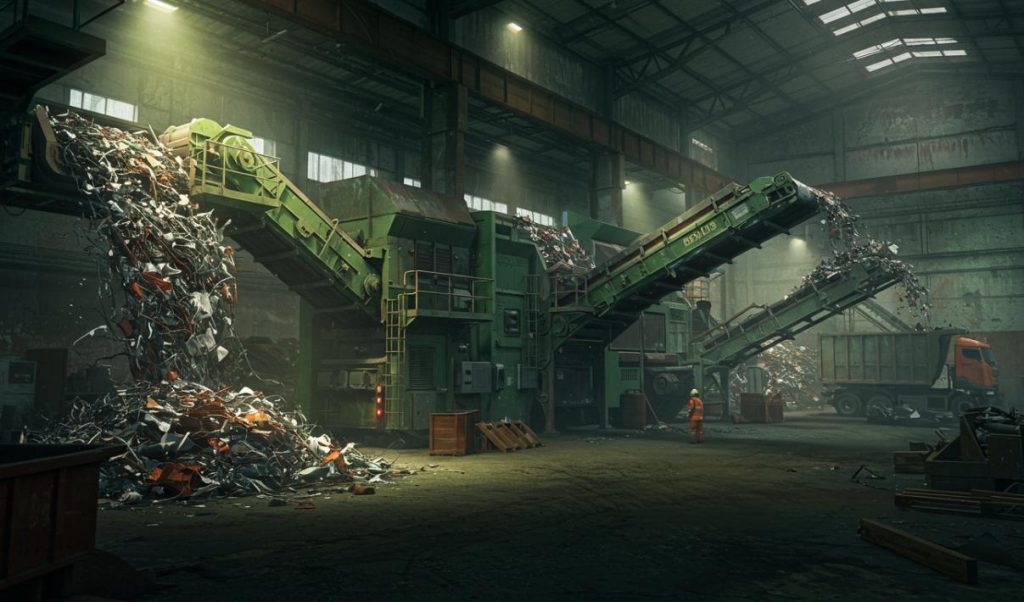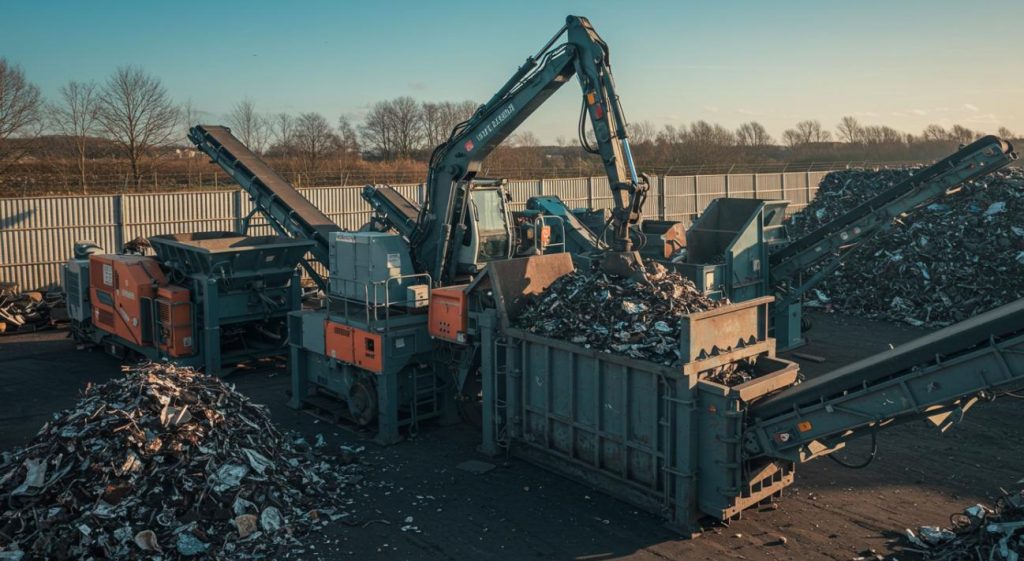Did you know that millions of tons of valuable scrap metal are discarded each year without businesses realizing their potential profit? From copper wires to steel beams, optimizing scrap metal management could boost your bottom line while reducing environmental impact. Read on for actionable insights on maximizing your scrap metal profits.
Identifying and Collecting Valuable Scrap Metal
Start by recognizing valuable metal within your job sites, this can significantly influence your earnings. The key is knowing what to look out for and collecting efficiently.
Different types of metal have varying market values, so understanding what you’re dealing with makes a huge difference. Copper, easily identified by its reddish hue, offers substantial returns and is commonly found in electrical wiring and plumbing. Aluminum, lightweight yet valuable, often appears in window frames or siding. Brass, a copper-zinc alloy with a distinct yellowish tone, is another profitable find in fittings and fixtures.
Establish clear collection points on your job sites to ensure no valuable metals get overlooked. Mark designated bins where team members can easily deposit scrap as they work. Regularly scheduled sweeps and encouraging staff engagement keep your collection efficient. When employees actively participate, your scrap collection becomes a smooth, profitable operation.
Sorting Your Scrap for Higher Profits
Proper sorting not only increases your earnings but also streamlines the recycling process. Aim to keep your scrap organized—mixed metals fetch lower prices.
Metals fall into two primary categories: ferrous (containing iron) and non-ferrous (iron-free). A handy magnet helps quickly distinguish ferrous materials since they’ll attract strongly, unlike non-ferrous metals. Non-ferrous metals such as copper, brass, aluminum, and lead generally fetch higher prices due to their greater recyclability and higher market demand.
Set up clearly labeled bins or containers to separate metals at the source. Effective labeling promotes proper sorting by your crew, saving you valuable time and effort later. Keeping metal types separated avoids contamination and ensures you get maximum value at recycling facilities or scrap yards.
Keeping Up with Scrap Metal Prices
Timing can dramatically affect the money you bring in. Being tuned into market fluctuations positions you to sell your scrap at optimal moments.
Platforms like the iScrap App make price checking swift and straightforward, allowing you to monitor real-time fluctuations. Simply input the scrap type you have, and the app delivers current average prices per pound. Staying informed ensures you’re always in the best position to make profitable decisions.

Finding Reliable Scrap Yards and Businesses
Your profits rely heavily on choosing trustworthy, transparent recycling facilities. Research local scrap dealers and form lasting connections to make your job easier.
Nearby scrapyards often build long-term relationships and may offer better deals to returning customers. Using apps like iScrap lets you quickly locate reviewed, well-regarded facilities near you. Remember, customer service, reliability, and transparency are just as crucial as competitive prices.
Always verify payment methods, pricing clarity, and facility reputation. Ask about scale accuracy, how they handle mixed loads, fees for sorting, and how frequently market prices are updated. These questions help you avoid misunderstandings and ensure you receive fair compensation.
Enhancing Sustainability through Responsible Recycling
Besides financial benefits, responsible scrap recycling supports ecological sustainability on your construction projects. Embracing recycling methods helps both your business image and the planet.
Recycling metals significantly reduces landfill waste and lowers the environmental impact of metal extraction, which typically requires high-energy consumption and generates pollution. It further conserves natural resources, ensuring a healthier, greener future. Explore sustainable construction strategies for further guidance on reducing environmental impact.
Demonstrating eco-friendly initiatives, like responsible metal recycling, may attract environmentally conscious clients and partners. It’s an excellent selling point to showcase during project bidding or corporate communication efforts. Embracing such sustainable techniques positions you as a responsible and forward-thinking company. Learn more on becoming environmentally conscious in construction through this useful guide.
In short, maximizing scrap metal value from your construction site is achievable through careful identification, efficient collection strategies, precise sorting, staying updated on market trends, and partnering with reliable recyclers. Embracing these practices effectively turns waste into profit while highlighting your commitment to sustainability.
Ready to transform your scrap metal management and maximize profits? Reach out to experienced scrap metal recycling professionals now!
Additional valuable construction and recycling resources for further reading:
- Effective Guidelines for Recycling Construction Waste
- Key Benefits of Embracing Green Construction Techniques
- How to Identify Different Types of Construction Metals
- Sustainable Practices for Modern Construction Businesses
- Managing Construction Site Waste Responsibly


